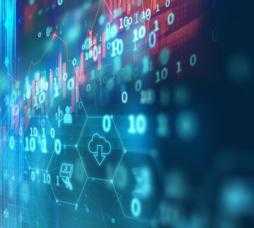
At the beginning of the 20th century, physics underwent two major revolutions with the theory of relativity and quantum mechanics, which forever changed our conception of the world at all scales. Quantum mechanics concerns the infinitely small and has consequences that surprised the greatest physicists of the time. One of them is the famous EPR paradox which seems to defy the theory of general relativity since it implies the possibility, for two people far away in space, to agree instantaneously on a bit of information. However, quantum mechanics is one of the most proven theories of modern physics with many experiments confirming it with phenomenal accuracy. In the middle of the 20th century, Feynman put forward the idea of taking advantage of the quantum properties of matter to build computers that are more powerful than our classical machines. Thus, a model of the quantum computer was proposed and the first quantum algorithms were designed. Feynman's vision was fabulously confirmed after the work of Deutsch, Jozsa, Shor and Grover who showed that several classical mathematical problems known to be difficult (including the factorization of integers) could be solved efficiently in the quantum world. These results have an even greater impact today, as they call into question the security of the most widely used cryptographic protocols in the modern world and the race to build the first quantum computer has already begun.
The program of the seminar is available on the web page dedicated to the Graduate Program Numeric.


